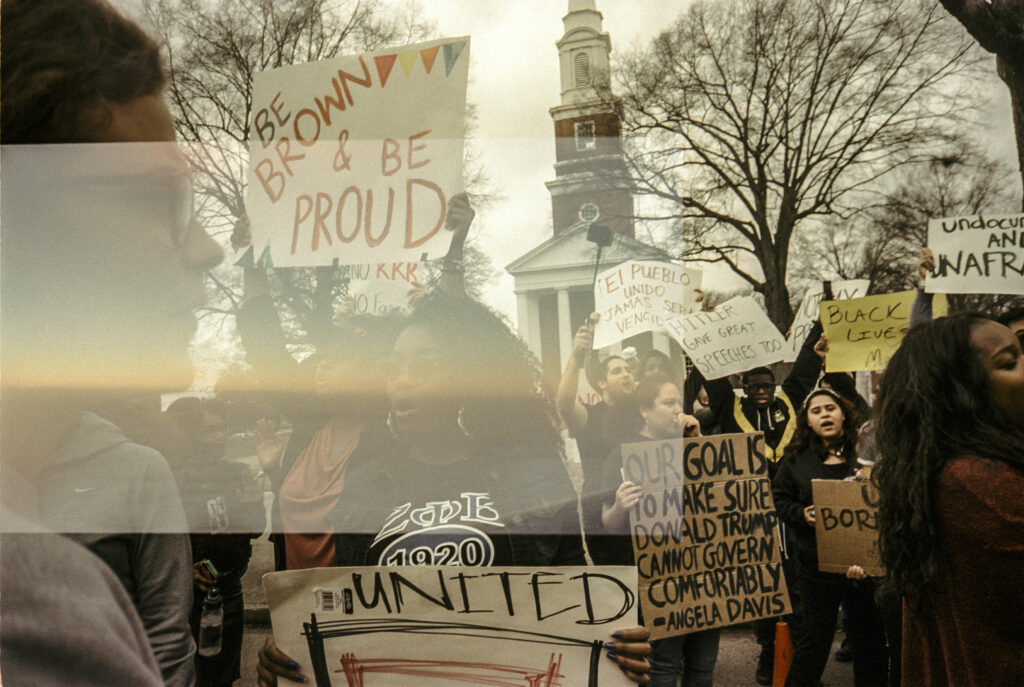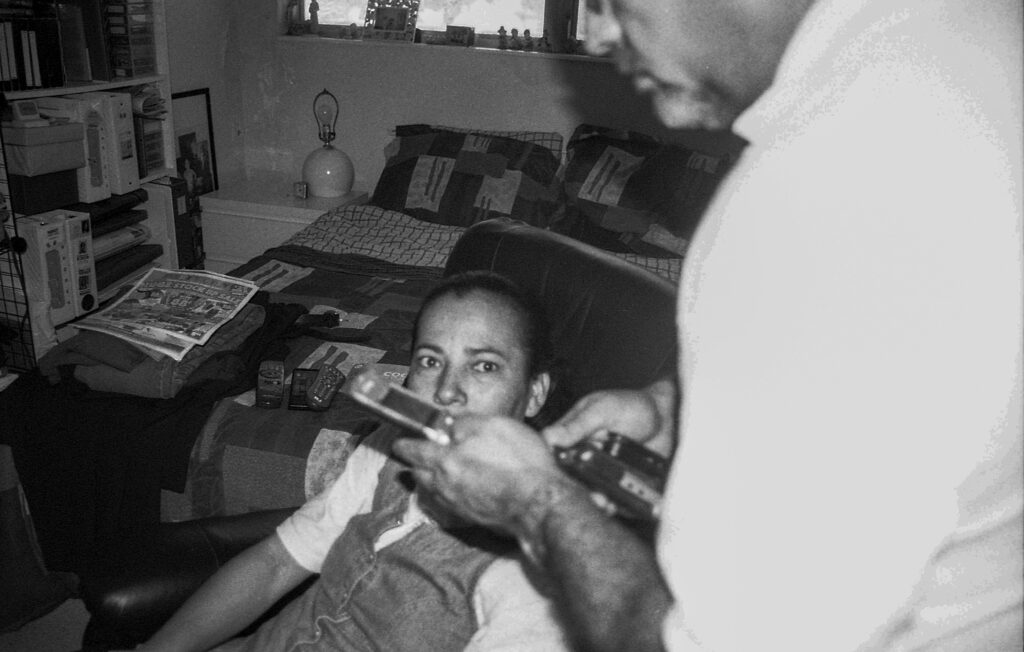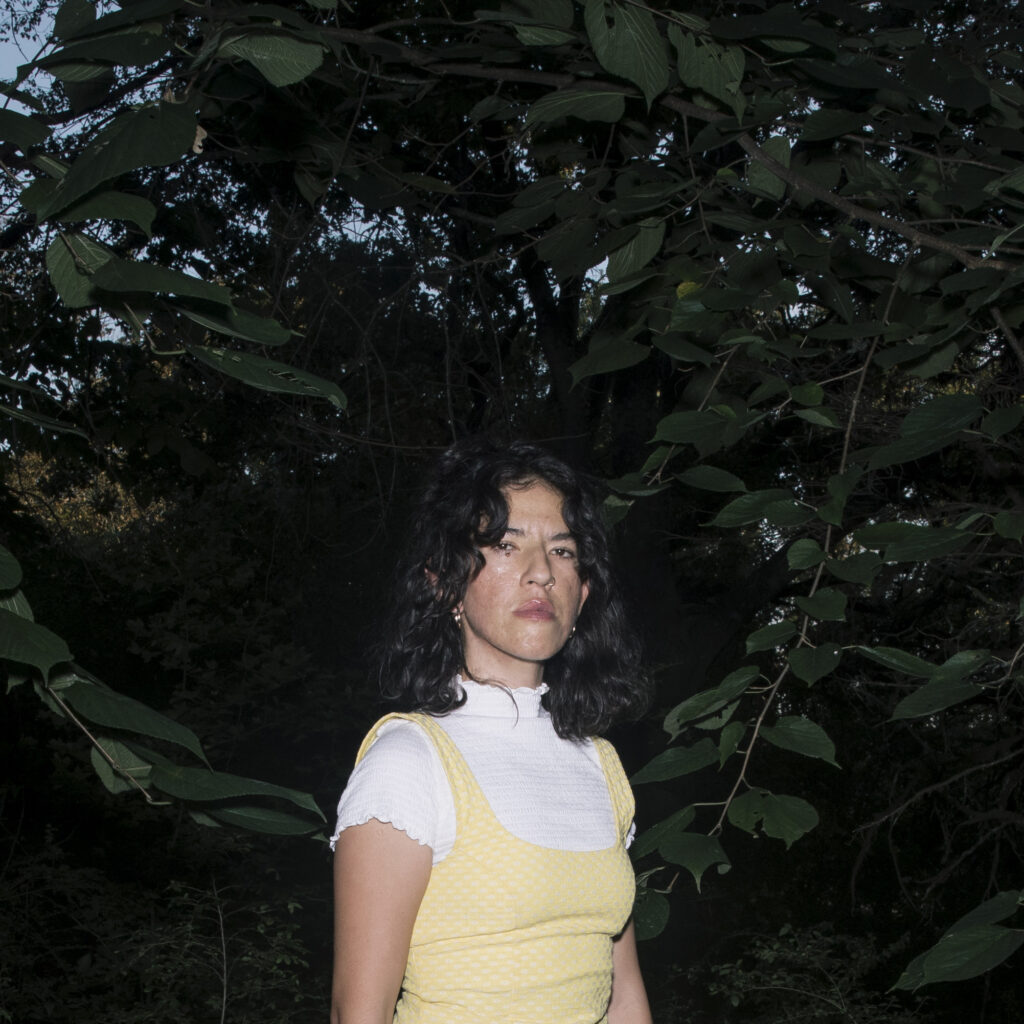Andrea Morales is a photojournalist based in Memphis and the Visuals Director at MLK50, a Black woman-led non-profit newsroom. Having always been in awe with how she captures and documents our city—the emotionality evoked, the stories being told—I was super excited to learn more about her craft and her life.
How long has photography been a passion for you? How did it begin? And how has it since evolved?
Photographs have always played a central role in my life. My family and I moved to the United States from Peru in 1989. I was four years old and, like parents do when their kids are that age, I was as hyperdocumented as one could be before cell phones. The images were about memory making for sure. They were often staged moments of stillness away from the day’s events. But it was also about place and identity making for ourselves and for the dispatches we would send back home.
When I was a teenager, I remember seeing an Annie Leibovitz exhibit at the Miami Museum of Art while on a school field trip. That was the first time I understood photos as a form beyond the personal and a function of art. Her portraits were printed at large scale and hung as elegantly as the Biblical images that hung gilded in gold at the Catholic church I grew up going to.
This all merged with a love for stories and storytelling that had me wanting to be a writer, but not feeling confident enough because my proficiency at the time was in Spanglish rather than English or Spanish. When it was time to go to college, I found a place for myself in learning about photojournalism. Stories had their ability to transport us to all these different places and photojournalism seemed to have the most exciting way to embody the role of the storyteller.
While making journalism is still a huge part of what I do, my relationship with photography has expanded and contracted in so many ways over the years. Photography sits on a razor’s edge between creating meaningful representation and causing profound harm. Storytelling now feels like a responsibility we have to each other. I try to treat photography as a delicate, emotional and democratic vernacular.
Many of your projects and photos seem to be centered around documenting the South ( various aspects of cultural life here, social justice issues, etc.). Is there something you’re interested in that is specific to this region of America? Does the South hold something special for you?
I left Miami for college and then allowed jobs and grad school to take me to different parts of white rural America for almost a decade. My twenties were spent moving to different communities as a total outsider and finding ways to earn trust as a storyteller while working as a photojournalist at different newspapers and working on projects.
Living in the South was never a plan I made, but I’m so glad I ended up here. I was in love and followed an ex down here after he got a job in Memphis. It was my first time not letting making photography be the sole deciding factor in my next move (though the ex is also a photographer I met in grad school.) In order to make a place home, I started connecting with people the only way I knew how: making photos.
Memphis started feeling like home extremely quickly. It was easy to romanticize belligerently about its resilience and its authenticity in a way that feels like it is part of the “new-to-Memphis” starter pack (side eye to “grit and grind.” But love is work and to love Memphis in earnest was to work to understand it through listening to the people (the carriers of its light.) My understanding of what justice and liberation were deepend by experiencing a place that is just as much joy as it is fight, one that calls for a different world while still celebrating how we’ve survived.
And that complexity is part of what informs my lens while documenting this city and other Southern communities in my work. With it, I hope to counter a colonized framework that positions narratives from here as a window to the past rather than the portal to a future.


How would you describe your photography to someone who’s unfamiliar with it?
My work is best described as community-driven visual storytelling. It aims to be collaborative and from a truthful place.
How does your queer identity affect, direct, or color your work?
When I think about my queerness, it certainly informs my sexuality, but also most specifically speaks to the desire for expansive love. Photography is a manifestation of that desire: my weird heart responding to a world alight by wanting to cherish it. As a younger person, it helped me deal with my anxiety. I was so into everyone’s story, but way too shy to get close. Photography gave me a set of tools to use in connecting with people in a way that felt meaningful.
It became the language for speaking toward conversations I was having with folks about what we thought
was important. Documentary photography is a vast umbrella for all kinds of work, but it feels like my practice is at its best when it reads like love letters from the lil queer working class immigrant kiddo I am. Having my identity inhabit my work is a new thing for me and the more I understood my queerness, the less I wanted to hide. It’s a slow process, but it’s so important to me.
How does your own family history influence your work/the way you document other people’s experiences and lives?
There’s something that exists between sentiment and lived experience that can bring a different sensibility to how we hang a frame around people’s lives. As I been going on about corny-style already in this interview, I’m the oldest daughter of a Peruvian immigrant household. We grew up in working-class Miami. The photojournalistic cannon I came up with as a young photographer was one that revered a certain gaze toward people like us and for a long time I emulated that as I did what I thought I needed to do in developing a practice. The gaze sometimes casts a moment as a sentencing of a community rather than a sentence about the community. That’s not something I wanted to perpetuate anymore. Unlearning in service of minimizing harm is love work tho.
Who is your photography for? What do you want it to convey? Whose stories are you wanting to tell?
I’d like my work to speak to any and all beating hearts out there. It’s honestly too emotional, so if you have the stomach for raw uncut feels driven stuff, that works.
I don’t know how we’ll treat the records we have of these moments in the future. I don’t know how stories will survive. But I think about how photos as documents have done so much for our ability to remember. I want to make sure that all of us can see each other in these future memories.

For you, what makes a good photograph?
It has nothing to do with the type of camera used, whether or not its analog or digital, its composition or colors. Good photos happen many ways. They are made by someone who is studied in the process that goes into clicking an aperture and also by folks with intimate vision of what’s before them. When I see photo loaded with signified tenderness (be it a family album or Deana Lawson monograph,) it strikes me like a tuning fork inside my chest.
Can you share with us one or two of your photos you’ve taken which are currently your favorites? Why are you drawn to them? What do they represent to you?
Mami (Miami, FL. 2003) + Memphis during Donald Trump’s first days in office (2017) [Both pictured above]
I recently started processing and scanning rolls of film I’d photographed slowly over nearly a decade. These photos are personal observations I tucked away for later, deliberately. I work in such volume and exclusively digital. These photos had no deadline. I was reconnected with images I made as a teenager with my first film camera (the Mami photo.) Or times that I was processing quickly in order to report the news but knew I would need to look back on from where I stood (the Memphis photo.) I did happen to start putting them together as an essay for a project I did for the Emerson Collective.
Talk a little bit about your creative process. What inspires you? How is it executed?
Great storytelling is so nourishing. I love to find it in all its forms and still use my visual brain to experience it. Audio has colors, text has texture. That sets up my synapses to reach for the parts of photography that can maybe communicate sound or feel like lyrical accounts of a moment. Unsure how successful I might be, but this is the game I play with myself to keep clicking.
Has the pandemic or any other social justice movements (BLM, for example) shifted or influenced your approach to documenting and understanding your images?
Everything is fundamentally changed by what we’ve been experiencing in this world, from the pandemic to the continuation of this country’s racial horror, so my personal change is not remarkable, it was necessary. I definitely move differently now for a number of reasons. The main one is that intersectionality is not just about shared oppression, but also about shared privileges. My work is made with transparency and accountability at the front of mind.
Can you tell us about your involvement in the Southern Documentary Project at the University of Mississippi? What did this project involve?
Can I tell you about my current work in Memphis at MLK50.com instead? I’ll tell you about the SouthDocs stuff some other time since I no longer work there, but I am proud of the work I’m contributing to now. I’m the Visuals Director at MLK50, a Black woman-led non-profit newsroom that reports from the intersection of power, poverty and policy in a city I love. Wendi C. Thomas and I have been working on this dream of hers since 2017 and it is so exciting to be working full-time with her as of July 2021. I work with an amazing group of journalists and co-conspirators to bring nuance, pressure and veracity to conversations in Memphis. We are a small staff so we all work closely together to make it happen.
andreamoralesphoto.com | Instagram: @_andrea_morales



